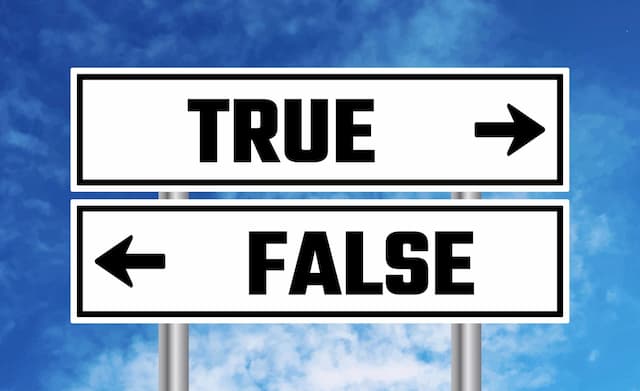Did Jesus call someone a dog?
It sounds offensive. There’s more going on.
Would you be offended if someone compared you to a dog?
Matthew 15:21-28 (my translation, compare NIV)
21 Leaving there, Jesus withdrew to the region of Tyre and Sidon. 22 And look, a Canaanite woman from these parts approached shouting, “Help me! Lord! Son of David! My daughter is suffering, tormented by a demon.”
23 He didn’t respond, not a word. His followers approached him requesting, “Send her away, because she keeps calling out behind us.”
24 He replied, “I was not sent, except to the lost sheep of Israel’s house.”
25 She came and knelt to him, “Lord! Help me!”
26 He replied, “It is not good to take bread from the children and throw it to the dogs.”
27 She said, “Yes it is Lord, for the dogs eat the scraps that fall from their master’s table.”
28 Then in response Jesus said, “Woman, your trust is awesome. Let what you want be done for you.” And her daughter was cured from that moment.
Why was Jesus so reticent to help? Was he trying to offend her?
The context is that Jesus has just withdrawn from confrontation with the Pharisees (verse 21). He’s not pulling up the weeds from God’s garden (verse 13). We’ve seen him withdraw from both the Pharisees (12:14-15) and from Herod (4:12; 14:13).
But where can he go? Galilee and Jerusalem don’t recognize his authority, so he leaves Israel for a break. Tyre and Sidon were cities of Phoenicia (Lebanon today). And he didn’t want anyone to know he was there (Mark 7:24).
The distressed mother who outs him is not Jewish. She’s a Greek, born in Syrian Phoenicia. That’s the politically correct description in Mark 7:26.
Matthew calls her a Canaanite (verse 22). It’s an antiquated, emotionally loaded term. No one in the Greco-Roman world spoke of Canaanites. The Canaanites were enemies that Joshua drove from Canaan 1200 years earlier. They were supposed to destroy the Canaanites (Deuteronomy 20:17).
But this “Canaanite” is no enemy of the new “Joshua.” (Jesus = Joshua in Hebrew.) Some of his own people have been trying to kill Jesus (Matthew 12:14), but this “Canaanite” recognizes Jesus’ authority and calls him Lord (verse 22).
Now, Lord is a broad term of submission. A slave called the master of the household Lord. Citizens called Caesar Lord. People prayed to God as Lord. What did she understand as the extent of his authority?
Her next phrase spells it out: she recognizes Jesus as the son of David, the king of God’s people!
But she’s not an Israelite. She has no claim on his kingship. His all-consuming highly-focused mission was to gather the harassed and downtrodden sheep of Jacob’s household (9:35-36). The shepherd-king insisted his servants were to focus only on the lost sheep of Israel (10:5-6).
How can he dissuade her? If he grants her request they’ll be overwhelmed. There will be no place they can escape for a break. He ignores her. The king’s silence is her answer.
But she doesn’t stop, and Jesus’ followers can’t cope with her insistent pleas. They want Jesus to send her away. Jesus doesn’t want to do that either. The king explains to his servants why he is not granting her request (verses 23-24).
She heard what he said, of course, but she refuses to go away. She approaches the king, kneels before him, and pleads for his help (verse 25).
Finally, the king speaks to her. It’s a royal rebuke. He tells her the same thing he told his followers. She’s not part of the covenant people who sit at God’s table, and she has no claim on the Jewish Messiah.
She may have heard Jewish people demeaning gentiles as “dogs.” He may have expected her to take offence and stop pursuing him.
But instead of taking offence, she turns his rebuke around. To him, she may be merely a needy puppy (the term Jesus used is diminutive), but couldn’t a puppy have a crumb from the royal table?
Jesus is shocked by her great faith. He’s not talking about her capacity to conjure up enough belief to get a miracle. What surprises him is the relational trust she has in Israel’s king. This foreigner is doing a better job of recognizing God’s anointed king than his own people. The only other case where Jesus spoke of great faith was also a foreigner — an army officer who understood Jesus’ authority (8:5-13).
Even John the Baptist had taken offence at what the Messiah was (or wasn’t) doing with his authority. Jesus offered him, “Blessing on anyone who does not take offence at me” (11:6).
The king extends that blessing to the Canaanite. She’s no enemy of God’s reign. As Jesus has done (5:43-48), Matthew is overturning the way we think about our enemies.
At the height of the cold war, a British musician named Sting wrote a song called Russians. At the time, the Russians were being presented as the enemy of the free world, inhuman beings who could destroy the world with the press of a nuclear button. Sting wanted us to see them as human beings, not enemies to be destroyed. His song returned to the refrain, “I hope the Russians love their children too.”
Turns out that the Canaanites love their children too.
Matthew knows. When Jesus is raised up with all authority in heaven and on earth, the people of the nations will trust his kingship ahead of many of the people who’ve sat at God’s table for centuries.
But for Jesus, there is no break. He has to leave and head back to Galilee (verse 29). Set one person free from the power of evil and the whole region will be seeking his help. That’s how much the world needs the restoration of God’s reign in Christ. He looks forward to the day when we’re all coming to take our place at God’s table (8:11).
Related posts
- Israel’s king as cosmic king? (Mt 15:21-39)
- Faith that amazed Jesus (Mt 8:5-10)
This post is adapted from the series, Formed in God’s Story: Matthew.
Seeking to understand Jesus in the terms he chose to describe himself: son of man (his identity), and kingdom of God (his mission). Riverview Church, Perth, Western Australia View all posts by Allen Browne








